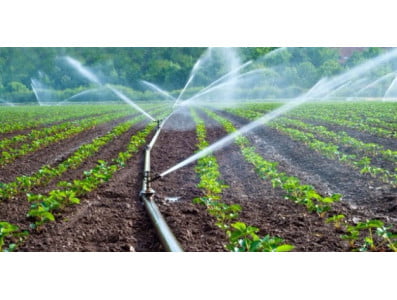
There are many reasons why agriculture deeply supports the Indian economy. Still, the most prominent among them is because food is a necessity, and agriculture or farming is a way of producing food. The agriculture sector greatly supports the economy not only in India but also the world over. So, you can say that agriculture is one of the most volatile businesses that thrive on the seasons or weather conditions.
Agriculture Business
Today, with the rise of various online platforms, agriculture has become a revolutionary sector. Such platforms cater to every farmer’s needs, including the equipment or machinery required to grow crops. The platforms also let farmers market or sell their produce at competitive prices. So, in a way, technology has played a prominent role in marketing crops or other such agricultural products.
The modern-day agriculture business caters to the requirements of both farmers and consumers without the need for mediators. However, it would help if you still had a solid roadmap to take your Agribusiness from establishment to fame.
Also Read: How To Register Your Food Business With FSSAI
Types of Agriculture Businesses
Table of Contents
Various factors fuel a successful agriculture venture, including land size, soil fertility, weather conditions, and irrigation facilities. Depending on these factors, you can do several types of businesses in the agriculture sector. For instance, you could start a horticulture business, or you could even do aquaculture. Similarly, you could do animal husbandry, floriculture, or fruit, or vegetable farming.
Likewise, many other businesses sectors in agriculture that you could try doing, including poultry farming, oyster farming, fish farming, and mushroom farming.
So, the agriculture sector is vast and varied and offers a host of business opportunities.
Agriculture Business Plan
Chalking out a good plan can help your agriculture business succeed. So, when coming up with an agriculture business plan, be sure to keep in mind all the elements that go into making it work. Also, look at some other such business plans so that you know what to incorporate. Alternatively, you could be looking at farm business plans and those of food production facilities and other such agriculture-based businesses. However, you should ensure that your plan gives you a direction for your agriculture business.
Most agriculture business plans serve two primary purposes:
a. They help you understand the teams you will be working with to make those vital business decisions that allow you to meet specific goals.
b. Second, they also help you get investors for your business. Investors could be bankers or any other venture capitalists who would be willing to raise funds for your agribusiness.
An agriculture business plan can be beneficial in many ways. For instance, it helps you determine if you can get the business going in a set direction. Furthermore, your agriculture business plan also allows you to estimate the costs required for founding the business.
A good business plan, especially one that clearly defines your corporate objectives and how you plan to achieve them, can convince potential investors to put their money into your agriculture start-up.
Also Read: How To Start An Organic Food Store Business On India?
Elements of an Agriculture Business Plan
When developing a plan for your agriculture business, you should make sure that you adopt a step-by-step approach and state all the components. The business plan also depends on whether you are starting out or already established. In any case, you should make sure that your business plan is simple yet realistic and specific yet, complete.
If you are looking to write a plan for your agriculture business, then here’s what you should include:
1. Mission Statement and Goals
The mission statement is the purpose of the business. That is why you want to start an agriculture business and what you hope to achieve. Besides this, it also states what your business will do and other companies or entities to which you will cater.
So, your mission statement should comprise your business’s identity and core values.
2. Business Details
Outline all the crucial details of your business, including the location, area of the land, the commencement of business operations, current situation, and the type of business. You could also include other things like marketing and environmental impact in this section.
3. Market Analysis
Most businesses begin with analysing the markets. So, it would help if you did the same for your agriculture business. To study the needs, you can start by researching them and gathering as much information about different things as supply and demand, industry trends, competitors, and buyers.
You can then conduct a SWOT analysis. SWOT is an analytical tool that stands for Strengths, Weaknesses, Opportunities, and Threats. By conducting a SWOT analysis, you can know the strengths and weaknesses of your agribusiness on the inside. Besides strengths and weaknesses, you can also learn about the opportunities and threats from the outside. Opportunities and threats could include new markets and competitors, government regulations and restrictions, and prevailing economic conditions.
Also Read: Many Benefits Of Online Food Delivery Platforms For Restaurateurs
Once you analyse your strengths, weaknesses, opportunities, and threats, you can then look at the information you have gathered and strategise accordingly. When doing this, make sure that you rely on other factors rather than the price alone. Also, spend some time crafting your strategy and revamp it several times without immediately jumping to finalisation.
Consider the merits and demerits of all the strategies you come up with, depending on your information. Also, make sure that your marketing strategies align with your goals and mission statement.
Finally, think about how you plan to implement your marketing strategy by considering all the factors that come into play in crafting your agriculture business plan.
4. Business Strategy
Develop a marketing strategy, one that aligns with your mission statement and goals. Think about your target customers and the products and services you want to offer to them, and design a marketing plan. For this, you can take cues from the information you gathered in the research and analysis stages.
When designing a marketing plan, consider all aspects, including pricing, placement, and promotion. Moreover, think about how your products or services can be valuable to your customers. Let customers know about your offerings and what they are worth. Only then will your business thrive in today’s competitive environment.
5. Finances
The finances section is one of the most crucial elements of your agriculture business plan. Here, you should assess not only your current financial standing but also future projections. Finances also let you decide if you need to take out a business loan for your agriculture business plan. So, assess how much money you have and how much you will need to carry your agriculture business forward.
Also, think about any investment opportunities you may have for your agribusiness. If you don’t have enough to begin with, you can always take out a loan from a bank or ask for financial help from other such private lenders.
Additionally, it would also help if you thought about the expenses that you may incur. Thus, by estimating your costs and projecting your finances, you can ensure that you don’t overspend and jeopardise sustenance.
6. Summary
The management summary is the last part of your agriculture business plan, where you highlight your achievements and show them to potential investors. So, when writing the executive summary, don’t forget to explain how you set up your agriculture business and to what extent it has grown. Convince those entrepreneurs, vendors, or distribution partners that your agribusiness has been successful and will continue to grow in the coming years.
Show your financial projections and let them know that investing in your business is worth every penny. That way, you can get more potential investors for your agriculture business.
So, don’t forget to include these crucial elements when writing an agriculture business plan.
Also Read: How To Manage Food Delivery Without Online Food Aggregators
Some Tips for Writing an Agriculture Business Plan
Coming up with and implementing an agriculture business plan is easier said than done. So, follow these tips to craft yours and take your agriculture business to new heights.
1. When writing the plan, be sure to consider the downsides, such as crop failure due to quality or natural calamities like heavy rainfall or pests.
2. Estimate the risks and try and avoid them as much as possible by taking all the necessary precautions to protect your agribusiness.
3. Leverage the power of the Internet to plan your agriculture business to compete in today’s ever-changing business scenario.
Also Read: Best Practices For An Online Food Business
Closing Words
There’s no doubt that writing a plan for your agriculture business is a big project. However, don’t let that deter you. When writing the plan, start with your mission statement and goals. Then, move on to researching the markets and design a strategy. After that, you can write how you will carry out the plan you have in mind. That is, how you will promote your offerings to your customers. Also, you must identify your target customers in this phase of your agriculture business plan. Finally, develop the business summary, but think about managing your expenses before you do that.So, when coming up with a plan for your agriculture business, take each step at a time. In that way, you can ensure that you don’t miss anything.






